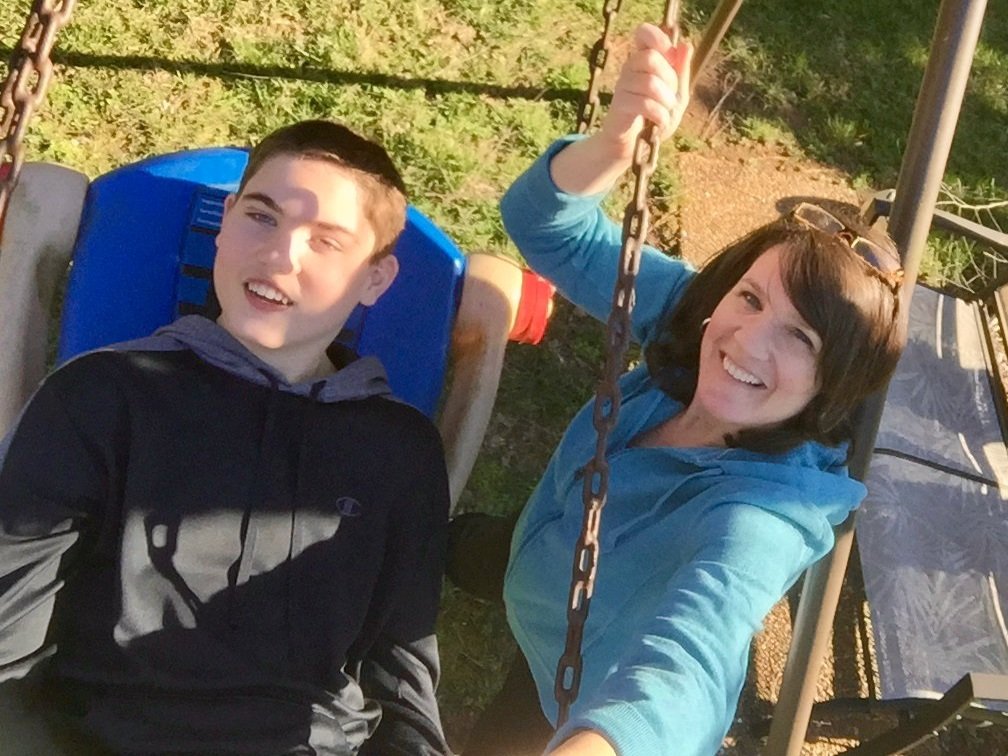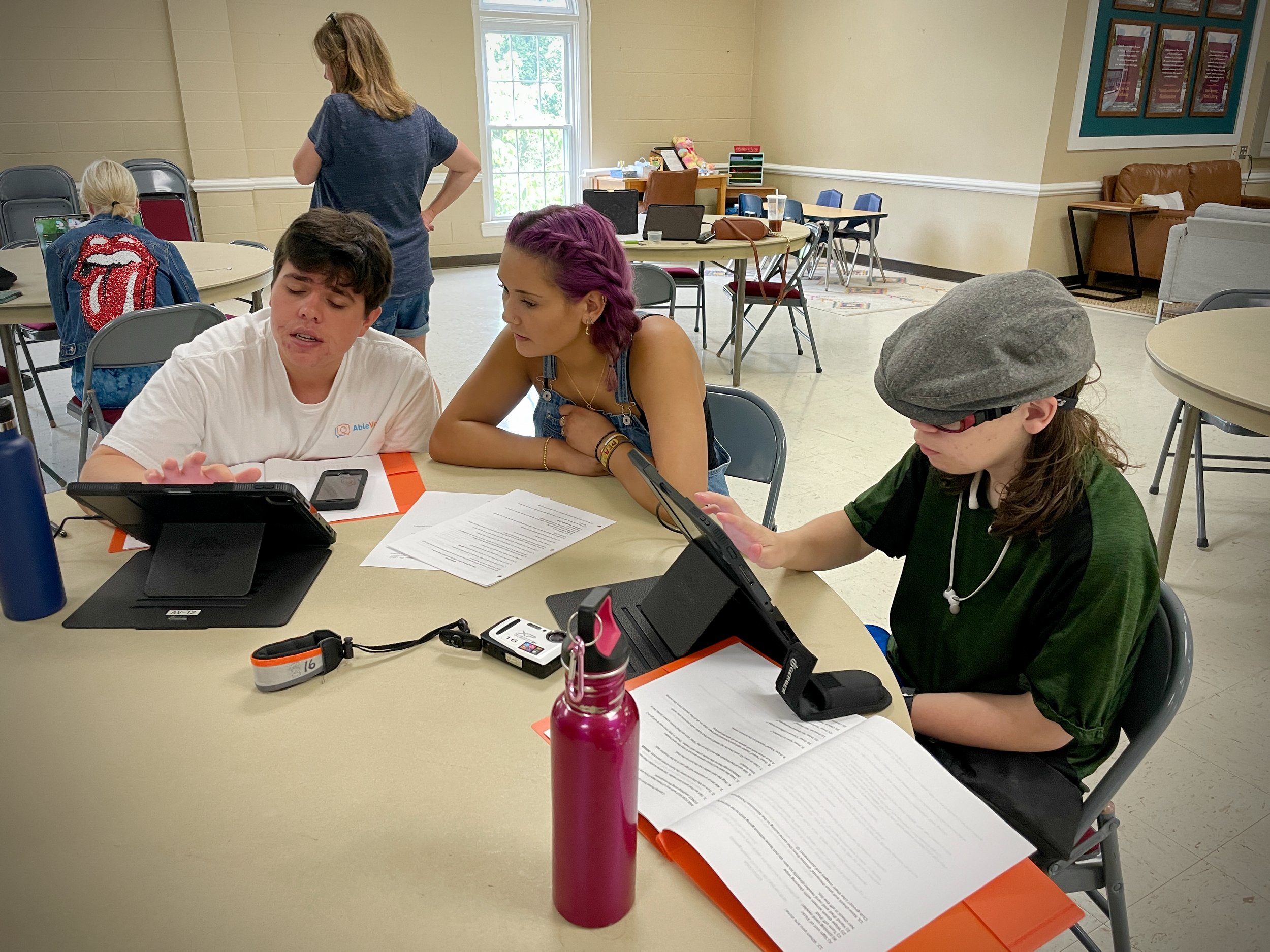What is your experience with disability?
Over the years, when talking to friends who also have kids with disabilities we’ve stumbled onto the topic of what our experiences were like with disability before having our child (or children) with a disability. And we’ve reflected on how raising this child has possibly reinforced our initial perceptions or if they have changed over time.
For me, the first time I specifically thought of my experiences with disability prior to my son (Aidan) being born, I wondered if there was some foreshadowing in my life that I was unaware of. There are three events that really stand out in my memory that shaped my perceptions of people with disabilities prior to Aidan being in my life.
In elementary school, I was part of a “fourth-fifth split.” That meant that each half of the class consisted of students from both grades. The thinking was placing the more academically successful 4th graders with 5th graders needing more support. Two of the students in fifth grade had intellectual and physical disabilities- Jeff and Allison. I sat next to these students, worked on group projects, played at recess and rode the bus with them. I knew they were different in some ways but I did not think much of it because they were my classmates and they belonged.
A few years later (mid-1980s) I remember walking by the family room at home and catching the start of a tv news show (something like 20/20). The segment was about “Mongoloid” children. And it made clear to me that this disorder, formally named Down Syndrome, was not a good thing to have. The journalist reported that these individuals could not learn, could not have jobs, would need to be cared for for the rest of their lives and ultimately be a burden to society.
As I listened to the dismal report, my eyes saw a different story being told by the images on the screen. I saw children with big smiles on their faces. I saw children laughing and playing. I saw children learning new things even if it was at a slower pace. And I saw children interacting with and loving other people. At that moment when the words and images collided I remember being initially confused and sad… and then feeling mad trying to make sense of it. As the segment ended, I turned to my mom and said emphatically, “If I have a child with Down Syndrome I wouldn’t be sad and I would love them as much as any other child!” I felt like the reporter (and anyone else who thought the same) just didn’t get it. I saw so much possibility and joy in these children that Down Syndrome should not something to be saddened by, but to be embraced for the unique contributions these individuals make to our world.
Years later as a sophomore in college, I volunteered to help out a student with Cerebral Palsy once a week for dinner. I met him at the cafeteria and helped him get his food and drink and assisted him during the meal. I remember being especially nervous about not understanding him and having to ask him to repeat himself too many times.
Dave was older than me and a graduate student. During those initial meals together, I was a bit taken aback. Dave was gruff and negative during our conversations. I tried to be positive and upbeat but he didn’t seem to appreciate it. I listened to stories of how he was ignored on a daily basis and how he hated relying on others to do simple things for him and the lack of many true friendships he had outside of his family. He hated people’s overly praiseful reaction to when he did something well or participated in activities that most people do throughout their lives. Slowly I began to realize why Dave was so frustrated.
So how have these experiences shaped how I see Aidan today?
I am thankful that I had the unique experience (I think for those times) of having students with disabilities in my elementary school class. I think I learned more from them than they learned from other students in the class. Their presence instilled in me that people with disabilities should be a part of our lives as much as possible and not be isolated from the rest of the school because of their differences. My husband and I advocated for as much inclusion as possible for Aidan throughout his schooling.
Raising kids with disabilities is hard and at times that outlook can seem bleak, primarily because societal expectations and lack of supports make it so. As a result, there are times when I need to remind myself to have the same positivity and see possibility for change that my much younger self did watching that tv show years ago.
But it also shows the power of these formative experiences and why we should seek them out throughout our lives– to get outside of our own experiences to learn how others live and broaden our perspectives. It’s that initial discomfort, like my early interactions with Dave, that can be especially important to truly growing and developing a new way of seeing. If we stay inside our bubbles and don’t engage with others that see and experience the world differently we miss a valuable opportunity. People with disabilities have important stories to tell and may not get as many occasions to do so. So seek out those opportunities with AbleVoices or in your life. You’ll be glad you did.
To learn more about volunteering with AbleVoices, visit https://www.ablevoices.org/volunteer.
Jen pushes her son, Aidan, on a swing.
Jen in fourth grade. Can you tell that her mom use to cut her hair?
Jen with transition students, Bethany and Molly, on an AbleVoices field trip to the Frist Art Museum to view the Dorothea Lange photography exhibit.
AbleVoices volunteer, Ellie, assists photographers, Brock and Paul, on selecting photos for the Williamson County fair photo competition.
Professional photographer, Robin Conover, joins our photography club participants on an outing to Radnor Lake. Robin creates the annual Radnor Lake calendar featuring her beautiful shots taken at the State Park.





